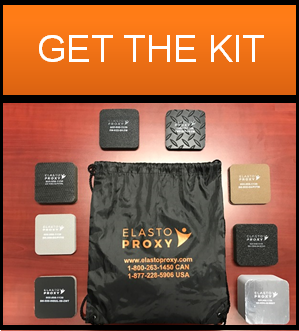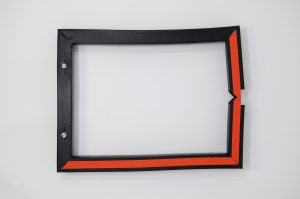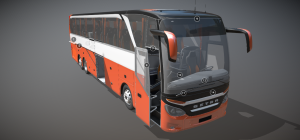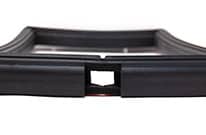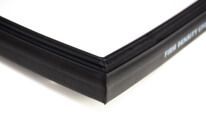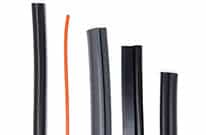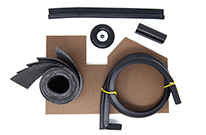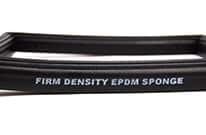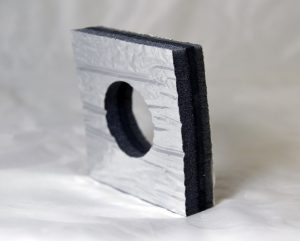 Engine bay insulation for mobile equipment keeps heat and noise in the engine compartment from reaching the cab interior. The diesel engines that power mobile equipment run hot and loud, which raises concerns about occupant comfort, health, and safety. Mobile equipment manufacturers also need to protect cabin components such as instruments from sound-induced vibrations. For a complete engine bay solution, Elasto Proxy makes thermal-acoustic insulation that can also dampen vibrations.
Engine bay insulation for mobile equipment keeps heat and noise in the engine compartment from reaching the cab interior. The diesel engines that power mobile equipment run hot and loud, which raises concerns about occupant comfort, health, and safety. Mobile equipment manufacturers also need to protect cabin components such as instruments from sound-induced vibrations. For a complete engine bay solution, Elasto Proxy makes thermal-acoustic insulation that can also dampen vibrations.
With mobile equipment, the cab where the operator sits is right next to the engine compartment. Unless adequate engine bay insulation is attached to the firewall, heat and sound from the engine will spread to the cabin. Cab insulation helps, but you need a complete solution. Elasto Proxy makes firewall insulation, and also fabricates insulation that’s installed under the cabin floor. This thermal-acoustic insulation is important in mobile equipment designs where the cab is directly above the engine compartment.
Engine Bay Insulation: Materials
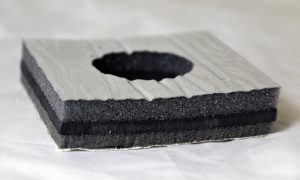 Engine bay insulation from Elasto Proxy halts high heat, loud sounds, and noise-induced vibrations. By arranging thermal and acoustical materials in layers, we build sandwich-like structures with the right combination of properties. Typically, engine bay insulation has three layers. The top layer consists of an aluminum facing or metallized Mylar that’s laminated to elastomeric foam. The facing reflects radiant heat and withstands contact with water and engine oil. Reinforced facings can also resist abrasion.
Engine bay insulation from Elasto Proxy halts high heat, loud sounds, and noise-induced vibrations. By arranging thermal and acoustical materials in layers, we build sandwich-like structures with the right combination of properties. Typically, engine bay insulation has three layers. The top layer consists of an aluminum facing or metallized Mylar that’s laminated to elastomeric foam. The facing reflects radiant heat and withstands contact with water and engine oil. Reinforced facings can also resist abrasion.
The middle of this insulation sandwich includes a layer of hard rubber that stops loud engine sounds. A layer of acoustic foam provides additional sound absorption. The bottom layer of the engine bay insulation is a pressure-sensitive adhesive (PSA) with a removable liner. Taped insulation is easier-to-install, and taping eliminates the health and safety concerns that are associated with adhesive spraying on your assembly line.
Elasto Proxy keeps a wide variety of thermal and acoustical materials in stock. We can also provide design assistance and help with compound selection. With our acoustic testing capabilities, we can recommend sound-absorbing materials for specific engine noise levels. Typically, engine bay insulation is 1/2”, 1” or 2” thick. Because Elasto Proxy is a skilled fabricator, we buy and use only the material quantities that you need. Compare that to the waste that’s associated with using a template and hand tools like a box cutter.
Firewall Insulation: Value-Added Solutions
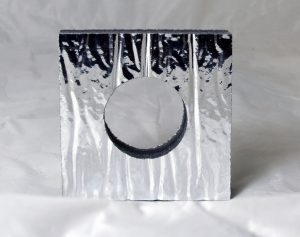 At Elasto Proxy, we use water jet equipment to cut smooth, straight lines and chamfers with 30° or 45° angles. With water jet cutting, there are no tooling charges or waiting for tooling. So if you change your product design, just send us your new drawings or CAD files. Water jet cutting also complements our lamination and taping capabilities. We can laminate thermal and acoustic materials together, apply PSA tape for ease-of-insulation, and then cut mobile equipment insulation your dimensional requirements.
At Elasto Proxy, we use water jet equipment to cut smooth, straight lines and chamfers with 30° or 45° angles. With water jet cutting, there are no tooling charges or waiting for tooling. So if you change your product design, just send us your new drawings or CAD files. Water jet cutting also complements our lamination and taping capabilities. We can laminate thermal and acoustic materials together, apply PSA tape for ease-of-insulation, and then cut mobile equipment insulation your dimensional requirements.
Elasto Proxy can also group all of your parts into kits and mark individual components with numbers or other identifying features. Thanks to inkjet printing and UV drying, our parts marking system produces letters and numbers that are crisp, clean, and easy-to-read. By packaging everything your installers need into a single box, you’ll save time and money on your assembly line. Instead of looking for 10 or 20 different SKUs in a warehouse, an installer can just open the box and get to work.
Get Elasto Proxy’s Sample Insulation Kit
Do you need engine bay insulation for mobile equipment? Would you like samples that you can show to co-workers in purchasing, engineering, or operations? Then request Elasto Proxy’s sample insulation kit. Packaged in a black-and-orange cinch bag, this convenient sample bag contains representative samples of mobile equipment insulation from Elasto Proxy.
